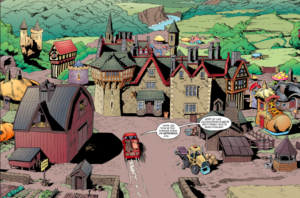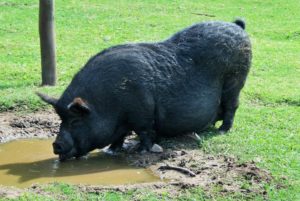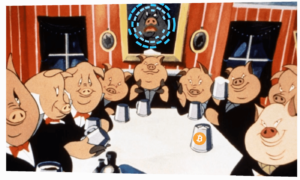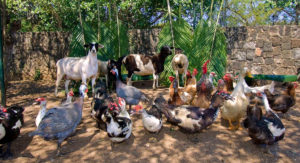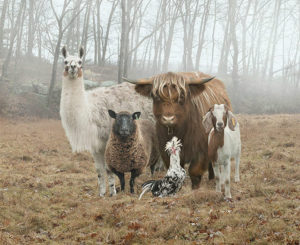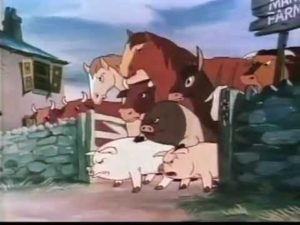Farms are good, right? So why shouldn’t we model university governance on farm management?
This is the farm, E-I-E-I-O. (Click to enlarge)
In theory, the farm is to be managed by a system of shared governance, under which all the animals are supposed to be equal, but in reality some are more equal than the rest.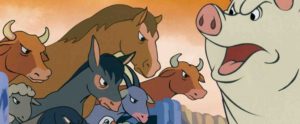
Generally speaking, the most equal animals are the pigs, just like in other types of organizations.
This is a farm administrator.
And this is the administration. They have 500 lawyers working for them to help keep the animals in line, who are paid by the farm.
These are some of the animals.
They don’t have any lawyers, unless they pay them themselves, when the pigs soil their stalls and nests.
As everyone knows, a farm doesn’t just run itelf. Someone has to run it, and it might as well be the pigs, because as we all know, they’re smarter than the other animals. That’s why they need 500 lawyers to help them run the farm. 
Maybe that’s why the rest of the animals like to tell lawyer jokes.
Welcome to Wonderland University Farm. We hope you enjoy your stay here. Alice did!
(Based on concepts from George Orwell, Lewis Carroll, and a children’s nursery rhyme; page design and text by Roger Rabbit)
Postcript: A highly respected faculty member of the U.W. School of Medicine has objected to this piece as follows:
“We all have the right to engage in discourse and satire and to disagree with others. At the same time, we can stay within bounds, and I believe that it’s not acceptable to follow the lead of the coarsest members of society, even if they have attained positions of power. Ad hominem and inflammatory attacks add nothing to the conversation. We need to respect each other. Even if one parodies Animal Farm, there is no reason to depict the university president as an overweight pig, or worse, imply that she is the enemy. You lose those who would otherwise support you. If there is a substantive argument, make it.”
He has a valid point, but in counterpoint, the claim this article depicts the university president as an overweight pig is inaccurate. It depicts administrators in the abstract as pigs, a traditional and widely used metaphor for those in power, and makes no reference or linkage to any specific individual in this respect. Also, the pigs depicted herein appear to be of average weight for pigs in general, and therefore probably are innocent of dietary abuse. (Please take this as tongue-in-cheek!)
In reply to the correspondent’s larger complaint, the function of satire is to call attention to an issue and illuminate it from a contrary perspective, and to do this, satire typically is uncomfortable, often scathing, inherently belligerent, potentially offensive, and may push the boundaries of normal social and literary proprietary — that’s the nature of the beast.
When George Orwell wrote “Animal Farm,” he satirized the totalitarian societies of the 1930s; what is being criticized here is an arguably one-sided system of university administration that pays lip service to “shared governance” but in actuality squelches the role of faculty, as illustrated by the fact that university administrators have hundreds of university-paid lawyers on their side whereas the Faculty Senate and individual faculty members have none.
What kind of shared governance is that? The kind that invites scathing satire. If you want to make the “Animal Farm” depiction go away, then accomplish it by truly sharing governance with the faculty, as the university’s governance structure is supposedly set up to do.
